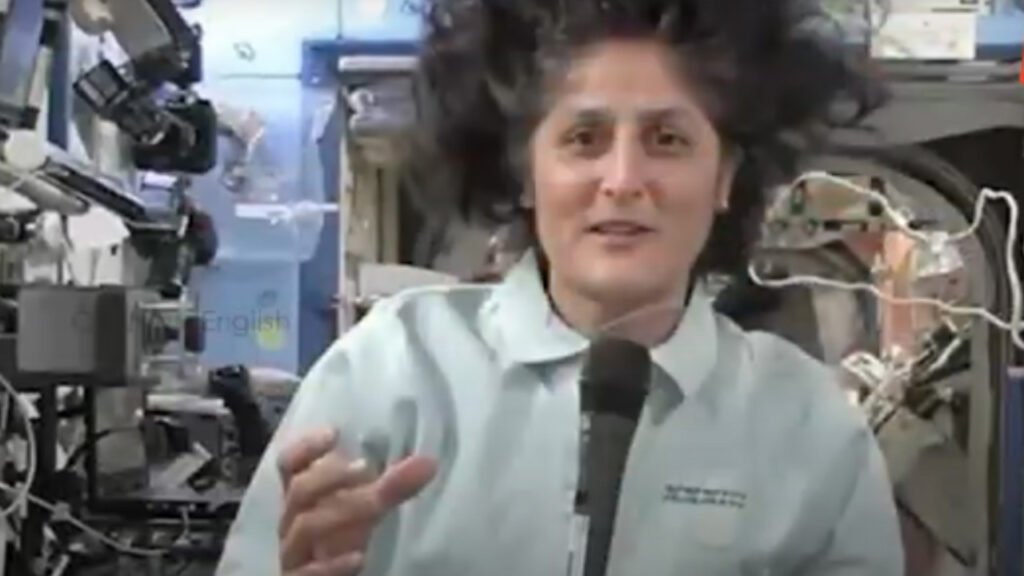Astronaut Sunita Williams said she is ‘trying to recall how to walk’ after 7 months in space, a challenge that many astronauts face upon returning to Earth. After spending over half a year aboard the International Space Station (ISS), Williams is now undergoing extensive rehabilitation to reacclimate to Earth’s gravity. Her journey back to normalcy is a testament to the incredible resilience of the human body and the dedication of astronauts who push the boundaries of space exploration.
Table of Contents
The Struggles of Readjusting to Earth’s Gravity
Astronaut Sunita Williams said she is ‘trying to recall how to walk’ after 7 months in space, a sentiment that highlights the intense physical challenges astronauts endure after long-duration space missions. Microgravity conditions cause muscle atrophy and a reduction in bone density, making simple movements like standing and walking feel alien upon return. Williams, a veteran astronaut with multiple spaceflights under her belt, has acknowledged that the process of regaining her terrestrial mobility is both fascinating and demanding.
How Space Travel Affects the Human Body
Astronaut Sunita Williams said she is ‘trying to recall how to walk’ after 7 months in space, reinforcing the impact of prolonged exposure to microgravity on the human body. In space, astronauts experience weightlessness, which leads to muscle weakening, balance issues, and cardiovascular changes. Upon return, the body struggles to readjust to Earth’s gravity, requiring weeks or even months of rehabilitation. Williams’ experience sheds light on these physiological changes and the extensive medical support astronauts receive post-mission.
Rehabilitation and Recovery: A Long Road Ahead
Astronaut Sunita Williams said she is ‘trying to recall how to walk’ after 7 months in space, underscoring the rigorous rehabilitation she must undergo. NASA’s rehabilitation programme involves physiotherapy, strength training, and balance exercises to help astronauts regain normal function. Williams’ case is no exception, and she has already begun the extensive recovery process under the supervision of medical experts. Her journey is a reminder of the sacrifices astronauts make in the name of space exploration.

The Psychological Aspects of Returning to Earth
Astronaut Sunita Williams said she is ‘trying to recall how to walk’ after 7 months in space, but the physical toll is just one part of the challenge. The psychological effects of long-term space missions can be equally daunting. After months of adapting to a zero-gravity environment, returning to the familiar yet foreign sensation of standing and walking can be mentally exhausting. Williams has shared insights into the psychological adjustments required, including coping with sensory overload and re-establishing a normal routine.
The Role of Space Agencies in Post-Mission Recovery
Astronaut Sunita Williams said she is ‘trying to recall how to walk’ after 7 months in space, but she is not alone in her journey. NASA and other space agencies have dedicated resources to ensure astronauts receive the best medical and psychological care upon their return. From nutritional support to intensive physiotherapy, these agencies prioritise astronaut health and recovery, making space travel more sustainable for future missions.
Lessons for Future Mars Missions
Astronaut Sunita Williams said she is ‘trying to recall how to walk’ after 7 months in space, an experience that provides critical insights for future long-duration missions, such as those to Mars. A trip to the Red Planet could take several months, and astronauts will need to readjust to gravity upon arrival and again upon returning to Earth. Studying Williams’ recovery process will help scientists develop better countermeasures for muscle and bone deterioration in space.

The Fascination of Human Adaptability
Astronaut Sunita Williams said she is ‘trying to recall how to walk’ after 7 months in space, a powerful testament to the adaptability of the human body. Her experience highlights the incredible ability of astronauts to push beyond human limits, exploring uncharted territories while enduring extreme physical challenges. It also underscores the need for continuous research on how space travel affects the body and how to improve astronaut health and safety.
A Veteran Astronaut’s Perspective
Astronaut Sunita Williams said she is ‘trying to recall how to walk’ after 7 months in space, yet her experience is far from unique. Having spent significant time in space during her previous missions, she understands the rigorous recovery process. Williams’ resilience and determination serve as an inspiration to future astronauts and space enthusiasts alike, proving that despite the hardships, space exploration remains one of humanity’s most thrilling frontiers.
The Future of Space Rehabilitation
Astronaut Sunita Williams said she is ‘trying to recall how to walk’ after 7 months in space, but advancements in space medicine may soon improve the rehabilitation process. Scientists are developing innovative techniques, such as artificial gravity simulations and improved exercise regimens, to minimise the effects of prolonged weightlessness. Williams’ recovery is not just a personal journey but a crucial learning experience for the broader scientific community.

Conclusion
Astronaut Sunita Williams said she is ‘trying to recall how to walk’ after 7 months in space, a challenge that reflects the extraordinary demands of space travel. Her experience provides valuable insights into the physical and psychological effects of prolonged space missions, influencing future astronaut training and rehabilitation. As space agencies prepare for longer missions to the Moon, Mars, and beyond, understanding and improving the recovery process will be essential in ensuring the health and success of astronauts exploring the final frontier.
